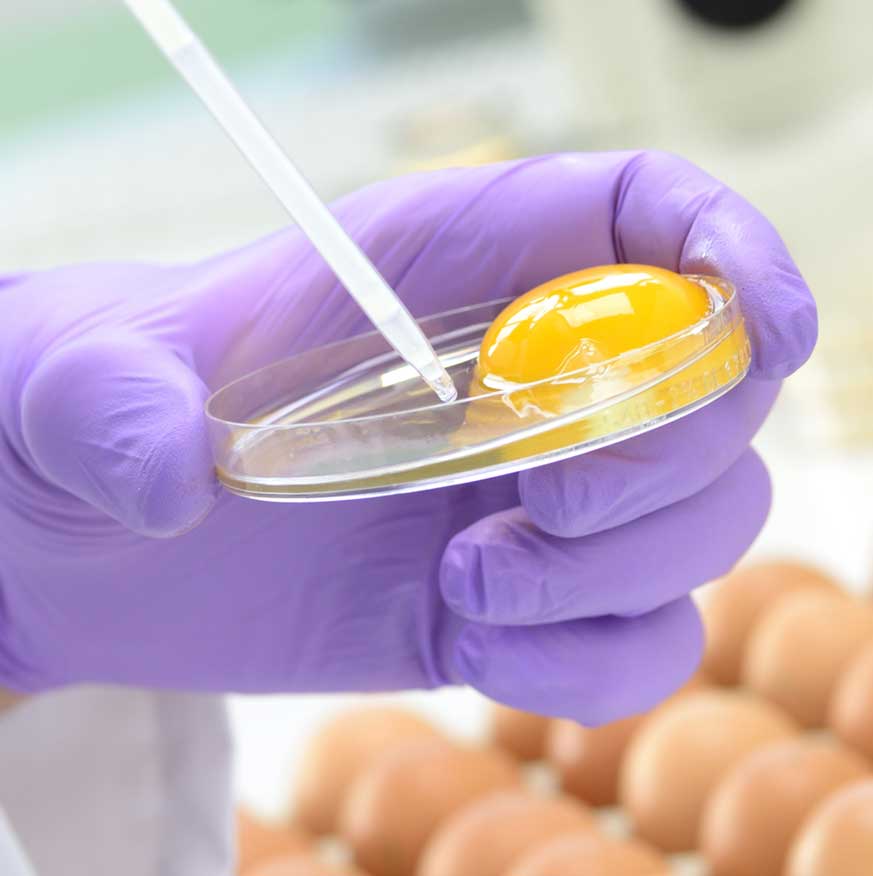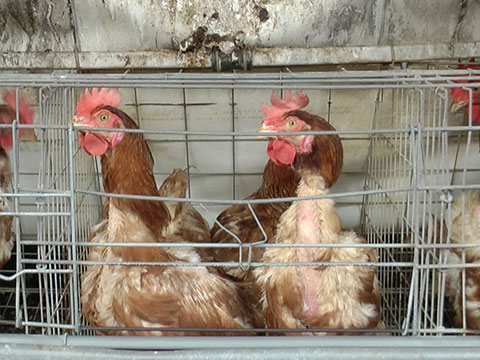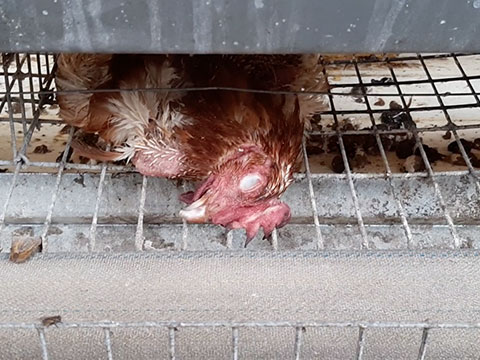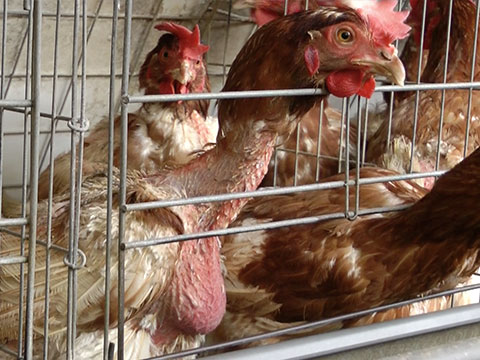
Schroders: Cruel Investment
A shocking look at Carrefour’s supply chain
Do you shop in Carrefour hypermarkets, grocery stores or convenience stores? If so, you might want to think twice. A shocking video shows the food safety risks and extreme animal cruelty behind the eggs sold in these stores.
On farms that confine hens to cages, droppings accumulate within inches of the eggs and the birds themselves. Hens are crowded most of their lives in battery cages so small and restricted that they are illegal in dozens of other countries around the world. The corpses of dead hens decompose right next to hens laying eggs for human consumption.
Many leading international retailers have already pledged to use only cage-free eggs, such as M&S, Aldi, Costco, CitySuper, Auchan, Tesco, Metro, but even though Carrefour has pledged to sell eggs from cage-free hens of its own brand, it also sells other brands of eggs from farms that raise their hens in dirty, restricted farms.
Schroders investment continues to support this dirty practice and to invest in a company that earns on animal cruelty!
It’s time for Carrefour and Schroders Investment to stop putting customer safety at risk and stop supporting this animal cruelty. It’s time for Carrefour to catch up to its peers and commit to setting a timetable to sell only cage-free eggs around the world.
Please sign the petition
Carrefour: I won’t shop at your stores again until you catch up with other leading food companies and commit to stop using eggs from filthy, cruel battery cages in Taiwan and globally! It’s time for Carrefour to treat Asian customers equally and go 100% cage free!

Food Safety Risks Of Caged Eggs
Over a dozen scientific studies have found that caged egg farms have dramatically higher rates of salmonella contamination. The European Food Safety Authority conducted the largest study ever on the issue, analyzing data from five thousand farms. It found that caged egg farms are 25 times more likely to be contaminated with key salmonella strains. (1, 2, 3, 4, 5, 6, 7, 8, 9, 10, 11, 12, 13, 14, 15, 16, 17)
There are numerous reasons why packing hens in cages causes food safety risks. Research by the United States Department of Agriculture shows the stress of cage confinement makes hens more vulnerable to disease. Cages are also hard to clean and disinfect, leading to “a larger volume of contaminated fecal material and dust. ». (18, 19, 20, 21, 22, 23)
Les œufs en cage sont cruels
Just like dogs and cats, chickens are smart, intelligent individuals that feel pleasure and pain. Packing an animal for nearly her entire life in a cage so small she can barely turn around is simply wrong. (24)
Battery cages are so cruel they have been banned in dozens of countries around the world. Every mainstream animal protection organization around the world condemns battery cages as cruel and inhumane. (25, 26, 27)
Here is what just a few such organizations have said:

« The RSPCA is calling for all cage systems to be banned…and for laying hens to be kept in well-managed alternative systems »
Royal Society for the Prevention of Cruelty to Animals

«Hens in cages are more prone to stress and injury, and an increased risk of salmonella »
World Animal Protection

« It’s inhumane for hens—intelligent, active animals—to be confined to cages so small they can barely move an inch for almost their entire life. »
Humane Society International
These organizations are not associated with this website

Caged Eggs
Carrefour continues to sell eggs to its customers from suppliers who confine chickens to cruel and dirty battery cages

Dirty
At Carrefour egg suppliers, hens defecate in the same sterile cages in which they hang their eggs

Cruelty
Each mother hen spends almost her entire life packed in a cage so small she can barely turn around
Téléchargements et documentation
Equitas is a UK-based non-profit organization working to protect farm animals in corporate supply chains.
Citations on the food safety risks and animal cruelty of battery cages
1: Van Hoorebeke S, Van Immerseel F, Schulz J, et al. 2010. Determination of the within and between flock prevalence and identification of risk factors for Salmonella infections in laying hen flocks housed in conventional and alternative systems. Preventive Veterinary Medicine 94(1-2):94-100.
2: Snow LC, Davies RH, Christiansen KH, et al. 2010. Investigation of risk factors for Salmonella on commercial egg-laying farms in Great Britain, 2004-2005. Veterinary Record 166(19):579-86.
3: 2010. Annual Report on Zoonoses in Denmark 2009. National Food Institute, Technical University of Denmark.
4: Van Hoorebeke S, Van Immerseel F, De Vylder J et al. 2010. The age of production system and previous Salmonella infections on farm are risk factors for low-level Salmonella infections in laying hen flocks. Poultry Science 89:1315-1319.
5: Huneau-Salaün A, Chemaly M, Le Bouquin S, et al. 2009. Risk factors for Salmonella enterica subsp. Enteric contamination in 5 French laying hen flocks at the end of the laying period. Preventative Veterinary Medicine 89:51-8.


